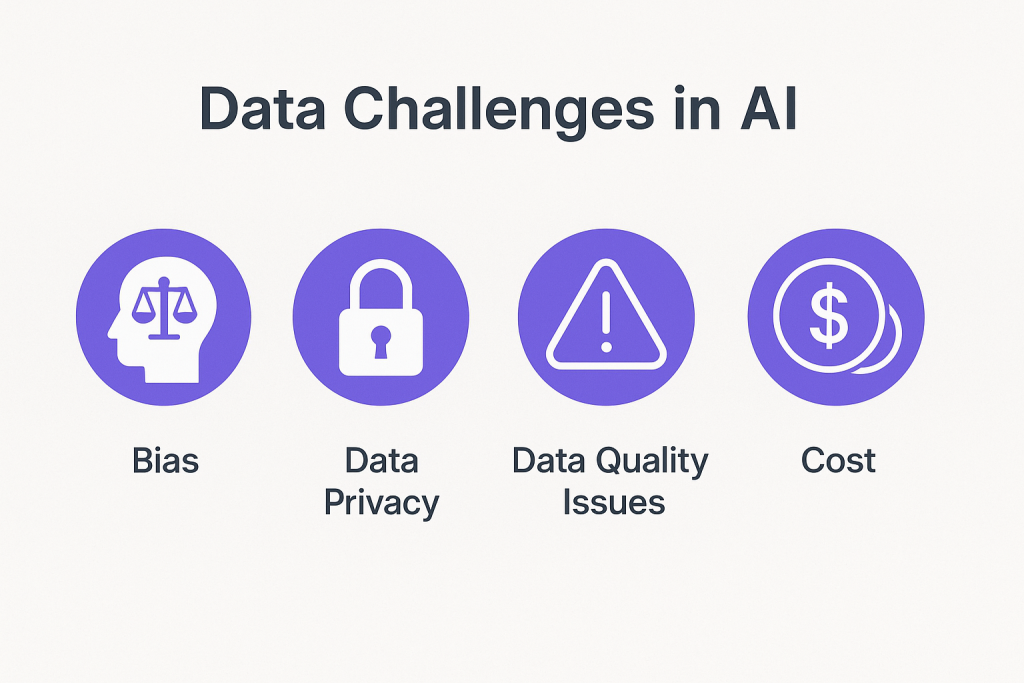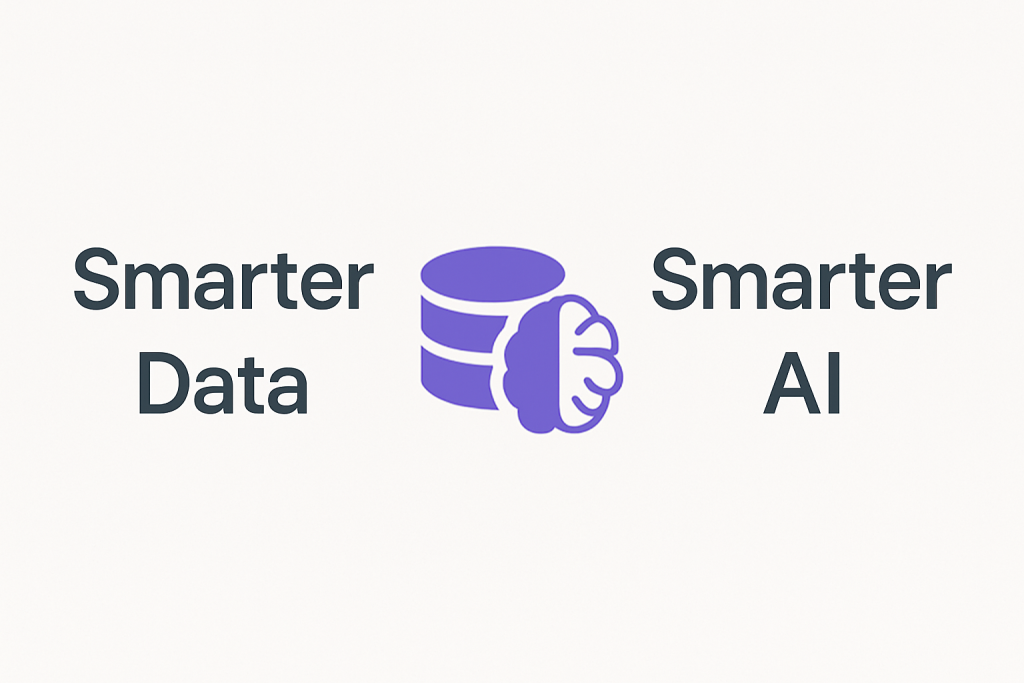Artificial Intelligence is often celebrated as the engine powering today’s digital revolution. It is reshaping industries, transforming business models, and influencing decisions at every level of society. Yet behind every successful AI system lies one essential element: data. Without reliable and well-prepared data, even the most sophisticated algorithms cannot generate meaningful insights or deliver accurate predictions.

At its core, AI learns through exposure to information. Unlike humans, who apply intuition and reasoning, AI systems rely exclusively on the data provided to them during training. This makes data the foundation of intelligence, shaping how machines interpret the world and the decisions they ultimately make. When the information is abundant, clean, and representative, AI can uncover valuable patterns that lead to innovation and efficiency. But when the data is incomplete, biased, or poorly structured, the results can be misleading and, in some cases, even harmful.
A useful way to understand this relationship is to think of AI as an engine and data as the fuel that powers it. No matter how advanced the design of the engine, it will only perform as well as the quality of the fuel it consumes. If the input is flawed, the output will inevitably be unreliable. In practice, this means that organizations seeking to build effective AI systems must prioritize the careful collection, curation, and preparation of their data long before focusing on algorithms or models.
One of the most common misconceptions in AI development is the belief that bigger datasets always guarantee better performance. Scale does play a role, particularly in applications such as natural language processing or computer vision, where vast amounts of information help models generalize across many scenarios. However, experience shows that quality is often more important than raw volume. A smaller dataset that is accurate, balanced, and diverse will consistently outperform a massive dataset filled with errors, omissions, or inconsistencies. The real challenge, therefore, lies not in gathering as much information as possible but in ensuring that the information being used is trustworthy and representative of the real world.

This distinction becomes clear when considering industries where data plays a life-or-death role. In healthcare, for example, AI systems are now being trained to identify early signs of diseases such as cancer or diabetes through the analysis of medical imaging and patient records. The reliability of these tools depends entirely on the quality of the data they are exposed to. If training data lacks diversity, the system may miss critical variations in symptoms across different populations, potentially leading to misdiagnosis. In finance, fraud detection systems depend on transaction histories that accurately capture both normal and abnormal behavior. If the dataset is incomplete or skewed, fraudulent activity may go undetected, exposing institutions and their clients to significant risk.
The same principle applies to retail, transportation, and virtually every other sector adopting AI solutions. In e-commerce, recommendation engines succeed because they draw on carefully structured and well-labeled customer behavior data, enabling them to make relevant suggestions. In the development of autonomous vehicles, billions of miles of driving data are collected and analyzed so that the systems can perform safely under diverse conditions, from crowded urban streets to rural highways in adverse weather. Each of these cases highlights the same truth: without high-quality data, AI cannot deliver on its promises.
Despite its importance, working with data presents significant challenges. Bias is one of the most pressing concerns. When datasets do not accurately represent the diversity of the populations they are meant to serve, the resulting AI models risk reinforcing stereotypes or producing unfair outcomes. Privacy is another critical issue. The collection and use of personal information must comply with strict regulations, and organizations must balance innovation with respect for individual rights. Beyond ethics, practical challenges such as missing values, duplication, and mislabeling can undermine the effectiveness of any dataset, while the cost of obtaining and preparing high-quality data often presents a barrier to entry.

To address these challenges, organizations must adopt strong data strategies. This involves more than technical fixes; it requires a cultural shift in how businesses view their information assets. Data governance must become a priority, ensuring transparency in how data is collected, labeled, and used. Cleaning and auditing must be ongoing processes, not one-time tasks. Diversity and balance must be deliberately built into datasets to reduce bias and ensure fairness. In areas where real-world information is limited or costly to obtain, synthetic data can play an important role, providing models with simulated yet realistic training scenarios. Above all, ethical considerations must remain at the forefront, guiding decisions about what data is collected and how it is applied.
Looking ahead, the future of AI will be defined not just by advances in algorithms but by advances in data practices. The most impactful breakthroughs will come from organizations that view their information not as a byproduct of operations but as a strategic resource to be carefully managed. Clean, diverse, and ethically sourced data will enable AI systems to generate insights that are not only accurate but also fair and trustworthy. Businesses that embrace this perspective will not only build more effective technologies but also earn the confidence of customers, regulators, and society at large.
Artificial Intelligence represents one of the most powerful tools of the modern era, but its power is entirely dependent on the data that drives it. Success in healthcare, finance, retail, transportation, and beyond demonstrates that investment in information quality directly translates into smarter AI systems and stronger business outcomes. As the digital economy continues to evolve, one principle remains clear: the smarter the data, the smarter the AI. Organizations that internalize this principle will lead the way in the new age of intelligent technology.
